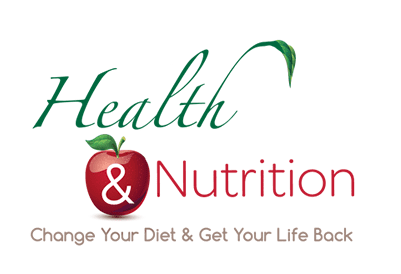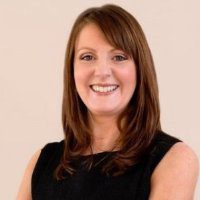Fiona Montague
Qualified Nutritionist & Weight Loss Coach
Qualified NLP Practitioner
When did you first become interested in food and nutrition?
After a car crash in 1999 I reached a real low point in my life. I was dealing with constant pain. You name it, I had it – I was diagnosed with chronic pain, chronic fatigue, fibromyalgia, severe nerve damage, irritable bowel syndrome, insomnia and depression.
I was taking a huge amount of painkillers and was experiencing ups and downs from the medication. I was on Valium and in a zombie-like daze for a lot of the time. I was off work for a long time with the pain and was told by doctors that I would never be pain free.
During this period I attended a conference on ME, which discussed a link between ME and nutrition. I started wondering whether changing my diet could benefit me. I gave it a go and quickly discovered that the more changes I made, the better I felt. Within 6 months my health had improved dramatically and a year on I was completely pain free!
I finally got back to work in 2006 but the recession hit and I was made redundant in 2008. Unsure of what to do next, I wondered if nutrition would be an area worth looking into. I got in touch with the Irish Institute of Nutrition and Health (IINH) and enrolled on their Nutrition and Health Coach course. I absolutely loved it and I quickly knew that I had found a career I was passionate about.
What is your educational background?
In 2010 I qualified as a Nutrition and Health Coach with IINH, receiving two distinctions: an ITEC Diploma in Diet & Nutrition and Fetac Level 6 Certificate in Nutrition and Health.
I continued training in 2011, receiving a Merit in the FETAC Level 6 course “Train the Trainer”, as well as becoming a Patrick Holford Zest4Life Nutrition and Weight Loss Practitioner. In 2012 I trained with the Irish Institute of Neuro Linguistic Programming (NLP) and am now a licensed NLP Practitioner.
You now run a personalised nutrition consultancy service. What kind of services do you provide?
I offer personalised nutritional plans that are easy to follow and customised to fit in with people’s individual lifestyles. I get all of my clients to fill out an initial consultation form, which takes a broad look at their lifestyle in general.
Weight loss coaching begins with an analysis of their diets. Quite often I find that they are eating the wrong foods or maybe eating foods that are classed as “healthy” but that just don’t agree with them. If there are no food intolerances, the problem may be down to emotional eating or comfort eating and this needs to be addressed before anything else. There’s no point in starting on a healthy eating plan without addressing what’s going on in the background.
When designing a plan for a client I take the whole household into account and come up with a plan that everyone in the house can follow.
What kind of conditions do people come to you for help with?
People come to me with a wide range of conditions ranging from bloating, weight loss and fibromyalgia to headaches and pain.
The fact that I’ve suffered from pretty much everything people come to me for helps. One client came to me for help with fibromyalgia because she knew that I’d suffered from it. Knowing what it feels like means that I understand and I can relate. Having gone through 6 years of complete and utter hell myself, I can really empathise.
Has your own personal journey back to health through nutrition inspired you to help others to do the same?
When I discovered the healing power of food, I really felt I needed to share.
Before I realised the benefits of nutrition, I ate to fill a hole. I wouldn’t have thought to eat anything healthy. It was a revelation. We don’t have to accept these types of conditions that people are labeling us with.
One woman who came to me for help with weight loss had spent 8 years trying for a baby. She had tried fertility clinics, Reiki and acupuncture but nothing had worked. She became pregnant 3 months in. Simply by changing her eating habits, her whole life changed.
Often, people don’t think of the side effects and the internal damage an unhealthy lifestyle can cause. They don’t think of the long-term effects of not looking after your health.
Most people also think that your health naturally deteriorates as you get older but this is not necessarily true. We shouldn’t just accept that certain conditions come with age. Maybe your diet has deteriorated and this is the cause of your health problems.
You are also a qualified neuro linguistic programming (NLP) practitioner and you also use this in your practice. How does NLP help you to treat your clients?
Neuro linguistic programming teaches us how to identify and get rid of the negative thought patterns that are stopping us from achieving our goals.
NLP and health coaching work well together and can really complement each other. NLP helps to get any lifestyle change off to the best possible start. It’s all about achieving psychological and emotional balance and introducing positivity if there is negativity there. I want to equip my clients with the tools to overcome barriers and negative beliefs.
What’s different about your approach?
Programmes like Weight Watchers are all about weight and calories and points. I know plenty of people who have saved up all their points for treats. They may be losing weight but they’re eating food that has no nutritional value.
There’s no point in being stick thin if you’re also miserable and tired and what works for one person, won’t necessarily work for another. I look at the individual person and create a plan tailored to them.
What is your personal food and nutrition philosophy?
Everything in moderation. It’s all about eating the foods that agree with you and getting the balance right in terms of things like proteins and blood sugars. Don’t focus on what you have to remove from your diet, find the alternative. For example, if you have to cut down on dairy, you can still have chocolate – just make it dark chocolate.
People like Gillian McKeith didn’t do nutrition any favours. Her eating plans were far too restrictive and punishing. If you feel like you are depriving yourself, you’re not very likely to succeed.
I say give it your very best shot for the first 4 to 6 weeks. Prove to yourself what you can achieve on a weekly basis. After that you can eat what you like, but in moderation. Don’t have a bar of chocolate or a glass of wine a day, save it for the weekend.
What is your top food or nutrition tip?
Listen to your body. A lot of the time it is telling you what you should and shouldn’t eat but many of us are in denial. If you know that a particular food brings you out in a rash but you still eat it anyway, you’ve got to ask what damage are you doing internally? Your skin in the last place to be affected.
People don’t devote enough time to their health. The reality is that if you don’t have your health, you have nothing. No fancy car or jewellery means anything without it.
People are always looking for the quick fix for health problems. If they have eczema they use a steroid cream. Often medication just masks problems; it doesn’t treat the root cause. If they changed their diet they could get rid of the problem.
What advice would you give to someone embarking on a career in health and nutrition?
If you’re passionate about it, go for it. It can be a bit of a slow starter and it’s hard work but it’s incredibly rewarding.
I’ve had many different jobs over the years – I was an office manager, a buyer for Dunnes, I worked for Dell, I sold bricks and I worked in finance and marketing – but I always felt like there was something missing.
It can be tough emotionally at times. I often have clients who come into me crying but 4 to 6 weeks later they literally come in a different person. Their whole personality, outlook and appearance can change.
I have 20 testimonials on my website from people saying “you have changed my life” and that’s what makes it all worthwhile. It’s an amazing feeling being able to help people up; there’s noting quite like it.
What does the future hold for you?
I love what I’m doing and want to keep doing it but I would like to explore different ways of doing it. I go to Sulervalu in Clane once a week and educate people on healthy eating. I really enjoy giving talks and educating people on the benefits of healthy eating. Every week is completely different for me and that keeps it interesting.
More information: http://healthandnutrition.ie













